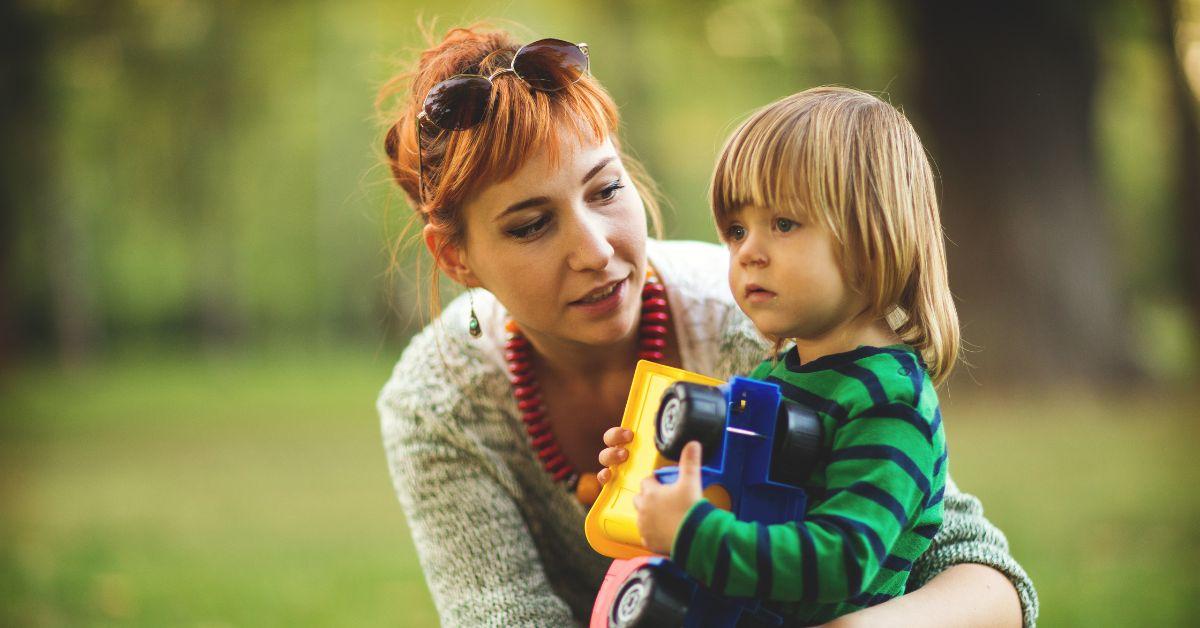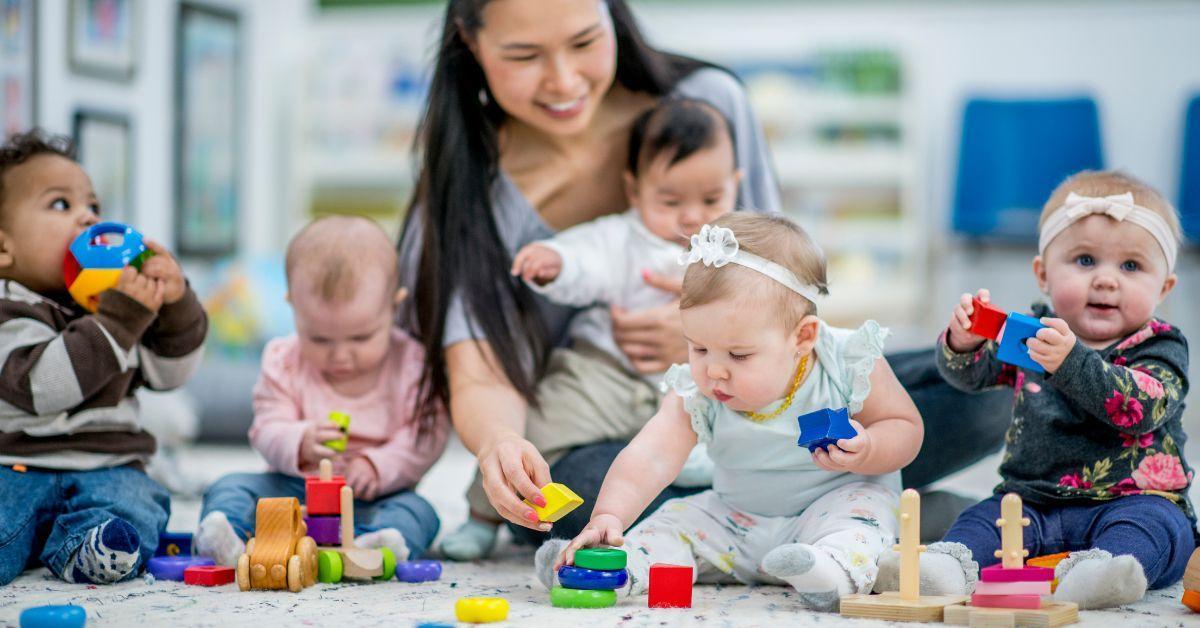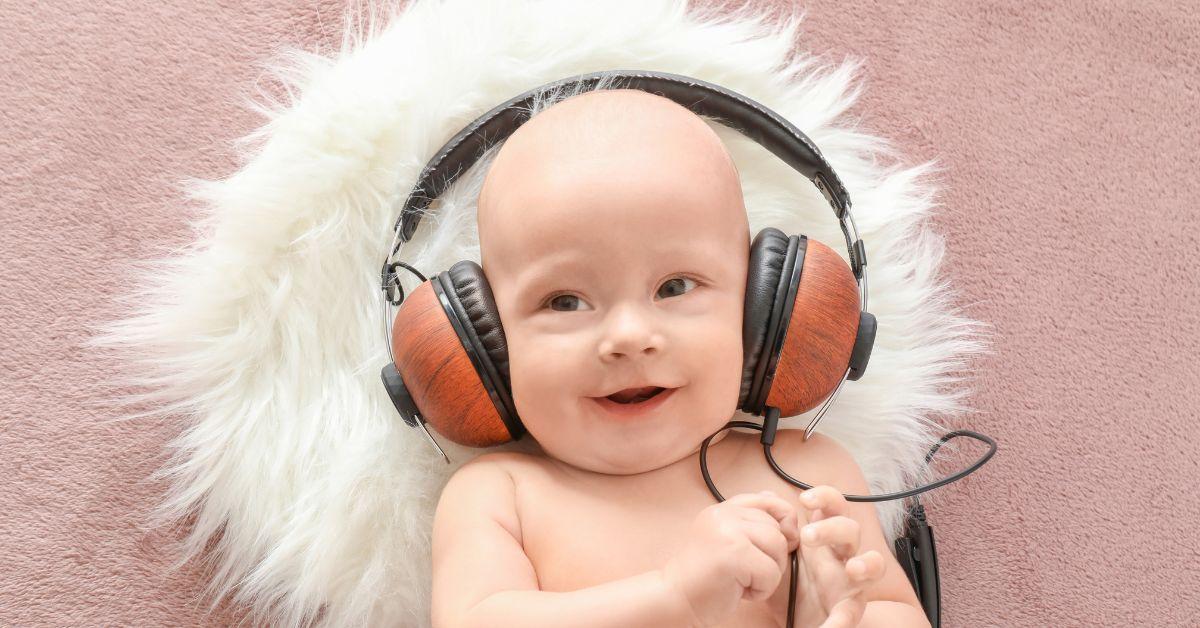When Do Babies Start Preferring Mom: Age When Attachment Begins?
Mothers eagerly wait for the day when their newborns will identify and attach to them. Newborn babies have a hard time understanding what’s going on around them. As a new mother, you may become frustrated and wonder, when do babies start preferring mom? However, a pattern emerges as their mother treats them in the same way every day.
Around the age of two to four months, babies begin to form a connection to and fondness for their mothers. This bond may be the result of a variety of factors. Babies enjoy their mother’s fragrance and view, essential caring, regular presence, and feeding.
The level of a baby’s connection to their caregiver impacts their psychosocial development. If you have a newborn baby, you should learn to cope with them. This page covers all the required information about a baby’s recognition, bonding, and behavioral issues.
Is It Natural for A Baby To Prefer Mom Over Others?
It’s pretty common for a baby to prefer mom over others. Because babies easily associate their attachment to their mothers. However, they can differentiate their mothers apart from others by touch, fragrance, and tone. As newborns grow, they can fully identify the individuals around them and begin to mingle.
Infants begin social interactions within their first few months of life. Mothers are frequently the primary source of connection during this period. And as a result, mothers quickly form a deep bond with their infants. In addition to the mother, babies build ties to people who respond to social cues like crying or smiling.
You should not take it personally if you aren’t the favorite right now. Keep in mind that your baby’s interaction with your family is critical to their long-term development. The key to a solid link is unconditional love for your infant and active engagement with them.
If you keep doing that, you will always be a contender for their heart’s number one spot. To build strong ties with your child, you must enjoy your time with them, engage them frequently, and listen to their indications.
If you think deeply, your decisions will differ multiple times and in various contexts. Avoid taking it personally when a youngster prefers a mother over other people in the family.
How Do Babies Form Attachments?
Attachment should not mix with bonding. It is when a parent falls in love with their child after birth. When a child becomes connected, they have formed a strong bond with their parents. Mostly, they can easily relate to mothers. A child’s ability to form an attachment takes far longer to develop than their ability to bond.
Babies begin to differentiate between people at some age as they mature physically and mentally. Infancy is a unique time for children’s psychological development. Babies’ connections with their parents become more emotional and exciting as they form bonds.
Months: 0 To 3
In the womb, a baby has all the essential survival capabilities. They’re able to act in specific ways. They have some behavioral capabilities. They begin to lay the foundation for particular needs and bonds later in life.
After delivery, a baby’s behavior is characterized by crying, clinging, sucking, and staring. After a few weeks, they smile and begin to babble. Babies have unique abilities. They can discern between different people based on their hearing and smelling abilities.
They are more receptive to human words, faces, and physical contact. As soon as they are born, newborns begin to have preferences for a specific individual who becomes their primary caregiver. Babies do not try social engagement or display healthy attachment behavior during the first few months.
Months: 3 To 6
After three months, the baby can distinguish between people and become more selective in social interactions. Babies can discern who is more present in their lives and develop a stronger memory for their faces.
They will pick a favorite person during this time. Usually, they choose their mother because of their high sensitivity. Bonding with a baby at this age is all about responding positively to their engagement ability.
Smiling babies want you to return the favor by looking at them and smiling yourself. While a baby will continue to cry, try and understand they want you to communicate their needs. You may also hear grunts, squeals, and gurgles by about five months. Aside from laughing or saying words, babies may also try and get your attention by squealing.
Months: 6 To 9
When babies reach the age of six months, they can differentiate between how various people in their lives treat them. You can expect them to react more strongly when their mothers leave the room. At this age, they mainly recognize their mother’s warmth and how to greet them.
These attachments change with a child’s growth and development. As this bond grows more potent, babies learn to trust their mothers. They form memories and preferences for loved ones and start to recognize strangers. Stranger anxiety occurs when your baby is afraid of people they do not know.
Months: 9 To 12
Most babies begin to show a desire for their mother and affection. Babies frequently cry, turn away, or exhibit strong reactions when their regular caregivers are away. These actions are referred to as detachment strikes or anxiety issues.
The attachment with babies will be more eager to explore once they start crawling. At this age, a baby’s curiosity about the world grows. This impacts your relationship with your baby and how well you bond with them. If your infant is on the move, they are likely exposed to new sights, sounds, and textures.
As a result, warm and comforting interactions with you help your baby feel comfortable exploring and learning new things. Even as your baby discovers and learns, you remain the most important person in their life. So as they get older, the baby still wants to be near you. They try to share their experiences with you and know that you care about what they’re doing.
Reasons Why Babies Begin To Prefer Their Mothers
Many factors contribute to a baby’s attachment to their mothers. A strong emotional connection is critical to a child’s growth and development, and it lasts throughout their entire life. From 0 to 3 months, babies have an overwhelming preference for their mother’s breast milk. However, after ten months, the specificity of this preference decreases.
For babies to form attachments to their mothers, several factors must be considered, as I’ve already mentioned. There are plenty of factual studies to back up this claim. There are so many reasons why babies begin to prefer their mothers. Those are given below:-
Recognize Smell And Voice
Babies can recognize their mother’s voice. It began even before they were born. A study shows that a baby’s heart rates become low when they hear their mother’s voice. It shows that the baby was actively listening to her voice and that it works as a calming influence on them.
Babies’ hearing begins to develop even before birth. This is because their skulls reverberate with their mother’s voice. If a mother speaks aloud to her baby, reads stories to them, or sings to them, the baby may develop a preference for her voice outside the womb.
Babies can also distinguish between their mother’s and other body fragrances. Thus, you should not be surprised that babies prefer their mothers over other individuals during the first few months.
Feeding
Feeding is one of the reasons babies want to be near their mothers, especially if they are breastfed. Babies have a vision range of 8 to 12 inches. A baby and mother’s eyes are perfectly separated when breastfed.
When their mothers breastfeed, babies enjoy staring at them. While feeding, mothers and babies have both eye-contacted. Babies can also distinguish between their mother’s milk and other milk by smell.
Mothers also breastfeed infants, ensuring their survival. Dads are great, but they can’t provide for their kids as a mother can. Babies are also very attracted to the smell of their mother’s breast milk.
Awaiting Acceptance
Preference for the mother is a natural phenomenon. When the baby begins to cry, you give in to their demands, including feeding, cuddling, or diaper changes. Responding to the baby’s needs and distress will teach them to trust and rely on you to feel secure.
You don’t want your baby to think that you’re spoiling them by always being available to them. It’s the most effective way to demonstrate your commitment to them. Your child will form an attachment to the parent who provides the bulk of their care. However, it’s often the mother who is responsible.
Interactions
Babies end up crying at night in the first few months. The ability to deal with your child at night is one of the most challenging aspects of parenting. You can share experiences and interactions, which strengthens bonds. You’ll develop a preference for them if you take good care of them when they’re in distress.
As you meet their needs, your baby will express this preference as a way of responding to you. Additionally, you’ll notice that the comforting process becomes more concise over time, and they’ll desire to be just next to you. Babies will establish a better liking for you as long as you hold them, rock them delicately, and mumble to them to relieve them.
When they wake from sleeping and see your smiling faces, they’ll feel more trusting of you. A child can learn and evaluate their caregiver’s responsiveness by interacting with them. Babies naturally prefer their mother because she takes care of all of these things.
How Do Babies Recognize Their Mothers?
A baby employs three important senses to recognize their mother: hearing, smell, and vision. Around seven months into the pregnancy, a baby begins to recognize the sound of their mother’s voice. When your child is born, he will already be familiar with your voice. And he will be able to identify you simply by hearing you speak.
When a mother’s voice is heard in the embryo for the last ten weeks of pregnancy, they actively listen to it. Babies recognize their mother’s scent, but they also adore it. Because your baby loves the feel and smell of your skin, it’s crucial to have as much skin-to-skin contact as possible.
When babies are born, the odor of their mothers’ amniotic fluid is the very first thing they smell. It also aids in recognizing the mother after birth. At birth, a newborn baby’s vision is not as developed as their sense of smell. After delivery, your baby’s strong and distinct sense of smell will assist them in recognizing your presence even from a long-distance away.
Babies as young as three days old can distinguish between their mother’s milk, and another’s simply by smelling it. According to a survey, babies can acknowledge their mothers’ faces within a week of birthing their first child. Being so close to his mother’s face means that a baby develops a certain facial recognition ability early on in life.
A baby can recognize their parents at three to four months old, and their vision improves monthly. If you notice that your child does not identify people or places by the time they are four months old. Then you can make an appointment with your child’s pediatrician right away to discuss your concerns.
When compared to adults, babies under six months of age are way better at distinguishing individual faces among a group of individuals. They can feel their mother’s warmth. After all, they can easily understand who is feeding, taking care of, and laughing with them. Mother and baby’s bond is very natural and does not take much time as they knew each other nine months ago.
What Will You Do If Your Child Begins To Prefer You Over Their Dad?
In addition to their mothers, fathers play an essential role in helping their children form healthy bonds that will last a lifetime. If you constantly reinforce your baby’s emotional connection to you, they may grow anxious when you’re apart.
The preferences of parents change over time as their children grow and develop. Furthermore, the decision varies based on the circumstances. Don’t let it bother you if your child shows signs of preferring your partner over you. When the children are older, a strong bond with their parents will allow them to have satisfying romantic relationships.
Towards The Babies
If your child only wants to be near you, they may be afraid of their dad. Doing something pleasurable and straightforward with your child can encourage father-child bonding. The following advice will assist you in reaching your goal.
- Laughing reduces anxiety and teaches your child the concept of object permanence. It understands that an object exists even if you cannot see or hear it.
- Infant massage teaches babies that their father can be soothing as well. When it comes to shushing, swaying, and swaddling, dads often excel. Babies require these movements to fall asleep.
- You can send your companion if your child wakes up in the night. They can calm and relax your baby, allowing them to drift off to sleep. Additionally, the baby will learn that your partner will be there for them in times of need.
- As soon as the baby is introduced to both parents, they develop healthy respect. So, besides the mother, the baby will have strong bonds with both parents.
- Showering, clothing, reciting, and laying the baby to bed will help him trust his father. Eventually, they’ll realize they’re as much a part of the baby’s life as the mother.
- When it comes to routine tasks like changing diapers and feeding the baby, enlist your partner’s help. In most cases, a baby chooses their mother over anyone else due to social interactions like these. You can help your baby and partner form a strong bond. Your partner can respond to these cues with you.
- Furthermore, even if you’re at home, you can entrust your child to your partner or father. Your child will eventually realize that their dad is in it for the foreseeable future. And they will start showing priority for dad.
It will not be easy to establish a relationship with the father so early. Therefore, the baby feels the care of the mother. Short-term separation from them will be beneficial. You should also avoid fluttering if you have a close relationship with your child.
Towards Their Dad
When your child pushes you away, it’s difficult, but being the preferred parent can be exhausting. After all, being the favored parent means you get to choose everything, from game time to bedtime.
When this occurs, you may experience feelings of exhaustion and overwhelm. Furthermore, you may feel henpecked between two people and even feel guilty if your child prefers you over the other person.
Maintain Balance
A mother is expected to handle all aspects of parenting that are work-related, such as bathing, cleaning, and nighttime routines. Meanwhile, a father is often expected to enjoy the fun and engage in non-stop play with their children. Both parents should share the work and the pleasure of parenting.
Support Their Father
Let your spouse handle the situation when your child insists on being tucked in. However, you should avoid rescuing your child too soon. Promote your child’s reliance on dad by being a good role model. You can remain nearby, respond empathically, and reassure your child that many people, including their father, love him.
Positive Comment
Utilize the time when you are with your child alone. You can praise their dad’s qualities in front of them. Please encourage them to consider their father’s strengths and weaknesses and their differences. Then you may discuss the similarities. Enlist two qualities that your child admires in each parent.
Possibility Of Feeling Hurt
Consider that the other parent may be having difficulties with your close relationship. You may feel better about your child’s choice, but the father may be feeling jealous, frustrated, or hurt because of his child’s preference. You can allow them the time and space to express themselves honestly.
Keep in mind that showing preference is an indication that your child is developing and evolving in the right direction. Your children’s liking for one parent will fade over time. After all, your children can have a special bond with both parents.
How To Deal With Anxiety Issues When Your Baby Is Too Attached?
You can do so many things to assist your baby in transitioning smoothly from your availability to your absence. The fear of being separated is a normal part of growing up. Separation anxiety is a common issue and affects almost every child. You, as parents, have a responsibility to look after your children and ease their transition to adulthood.
After a particular age, a mother has to leave her child as they get older and more independent. Anxiety issues like separation anxiety can develop if a child becomes overly dependent on their mother. Babies typically show signs of it at six months of age. It’s a clear sign of separation anxiety if your baby prefers to be wherever you are.
A new mother may wonder how she will cope with the fact that her child is having difficulties while she and her partner are apart. If you’re not paying attention, you might miss something important. Look over the following symptoms to see if any of them sound familiar.
- Emotional neediness rises.
- Crying all the time
- They are adamant about not going to bed.
- Increasing nighttime waking and feeding needs
- Anxiety about strangers
If your child exhibits these characteristics, they may be suffering from anxiety issues. To help your baby through this difficult time, you can do several things. Hence, the thing you can do for your child is to be patient with them. This section will teach you how to overcome anxiety when your baby is excessively attached to you.
Practices Of Distancing
You can have fun while reinforcing your commitment to returning. Sometimes games can help ease separation shock and anxiety. Whenever parents are dealing with problems, doctors recommend playing games so that their children can benefit from them. Once things get to that point, they will be easier to deal with.
Another option you can try is practicing short separations. You can set the timer for a short period and start slowly. You can gradually lengthen these absences so your child becomes accustomed to your absence. Allowing your partner to help is an excellent idea in this situation because it will encourage your baby to develop a preference for them instead of you.
Establish A Relaxing Sleep Schedule
This will relax your baby and help them sleep better at night. It provides a sense of security in the nursery. Using white noise, such as rain or a waterfall, will help drown out the jarring sound. Additionally, it will aid your baby’s ability to sleep soundly at night.
When your child is happy, you can put them in their crib. It will give them the impression that a crib is a place where they can rest easy. Switching up your sleep schedule is a great idea as well. You can maintain a routine three days a week.
You can put your baby to sleep while your partner takes care of the other three. A baby will not perceive an imminent threat if both partners participate in the same activities in their daily routines. They’ll initially scream for you, but they will stop bothering you after a while.
Maintain A Calm Mind Of Emotion
When handling severe anxiety, it’s vital to keep your emotions under control. As a reassuring gesture, give your child anything you have. Your child will feel secure in the presence of the scent. It will undoubtedly be difficult at first to go about your day without your baby.
Babies will imitate their parent’s facial expressions. As a result, it is critical to maintain your composure and keep your emotions under control. Once your child notices you’re upset, their anxiety will grow even more. Allow yourself some peace of mind, and don’t hesitate to check in on your baby while you’re making this transition.
Conclusion
In the early stages of life, babies form the strongest attachments to their mothers. So, stop bothering yourself with the question of when do babies start preferring mom. It is an utterly everyday occurrence for all babies and children. Thanks for making it to the end. We wish you and your baby all the best!






Jennifer Crowley
I'm Jennifer, a dedicated mother passionate about writing insightful blog posts. My life revolves around the joys and challenges of parenting and brings my unique perspective and experiences to writing, with a keen eye for detail and a love for storytelling. My blog is a platform for sharing parenting tips and advice and a place where I want to be with other moms and dads, offering them a sense of camaraderie in the wonderful, chaotic world of parenthood.